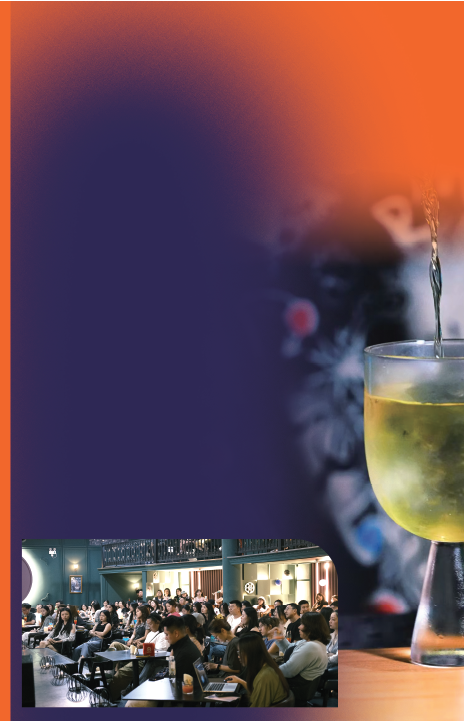

"When I first started bartending nearly two decades ago, bar patrons were primarily in their 30s or 40s, and alcohol was often tied to work-related events like business gatherings," said Zhang Yuan, a 37-year-old bartender and partner at Tablo, a cocktail bar in Beijing.
Zhang has observed that today, with more and more Gen Z customers visiting bars, they are transforming the drinking scene and the role of alcohol: rather than imbibing to get themselves or others drunk, they now use bars as spaces for various activities like studying, painting, or playing games while enjoying a cocktail.
For them, alcohol is just a pleasant accompaniment.
"They are creating and nurturing their own alcohol culture," Zhang said.
Li Xiaoyi, the 35-year-old owner of Fugger, a three-story cafe and brewpub in Beijing, has also noticed that many customers now seek out bars as relaxing retreats for their personal hobbies. For instance, Li recalls one customer who drew 20 cartoon figure heads on napkins and left them on the table.
"He was there simply to enjoy the time spent creating something," Li said.
According to him, bars are also becoming venues for social events like movie nights, yoga sessions, and even academic lectures — activities once thought to be entirely unrelated to alcohol.
Zhang Jianing, 28, is an organizer of these events in Beijing. He explained that the seemingly casual lectures and discussions held in bars cover a wide range of serious topics, from social sciences and humanities to AI technology.
So far, he has hosted around 10 sessions, each attracting 70 to 100 participants.
The idea of merging bars and lectures came to him during his graduate school years when he regularly attended book clubs, and fellow attendees would often continue their discussions in bars afterward. As a fan of craft beer and cocktails, Zhang Jianing decided to simplify things by hosting lectures directly in pubs.
"This is a new hobby that combines two of my favorite things: alcohol and academic discussions," he said. "My goal is to create a space for offline communication that is enhanced by these delightful beverages."
In Zhang Jianing's view, the ambience of bars and alcoholic beverages naturally carries a lighthearted vibe.
"Entering this space changes attendees' mindsets, creating an egalitarian and welcoming environment for the exchange of ideas. Speakers are not there to lecture, and participants are not there with a quota for how much they should learn," he explained.
One participant of such seminars is Qi Yuchen, 26, who attended an event focused on cats depicted in ancient Chinese paintings. According to him, the discussion remained lively even after the lecture ended, with conversations continuing about how cats have entered human lives and coexist with us. While Qi offered opinions on pet welfare legislation, other participants shared insights from economic and ecological perspectives.
Although Qi is not a regular drinker himself, he noticed how alcohol influenced intellectual exchanges.
"Under the tipsiness, everyone seemed more willing to talk," he said. "Even if you ask a silly or layman question, others won't laugh at you; instead, they'll acknowledge you and view it as a fresh perspective."